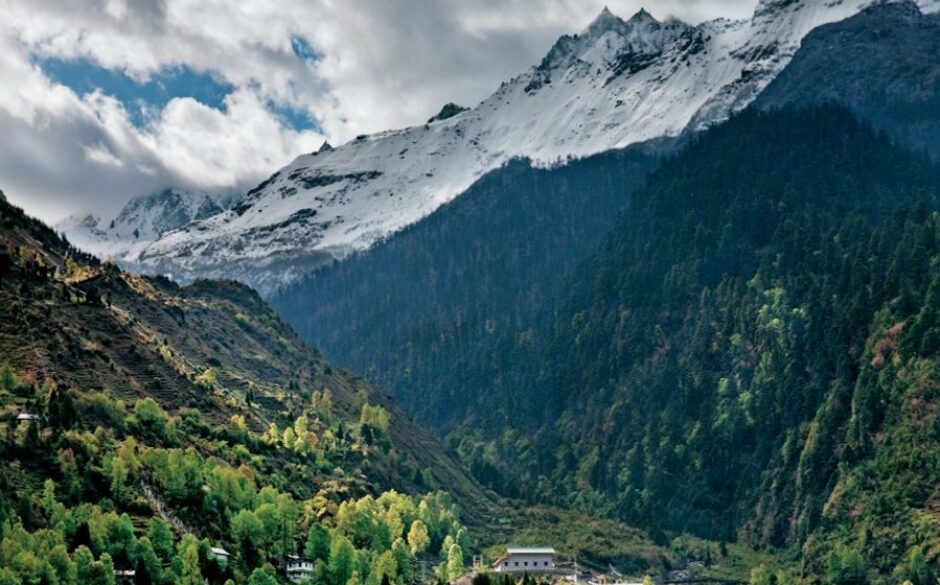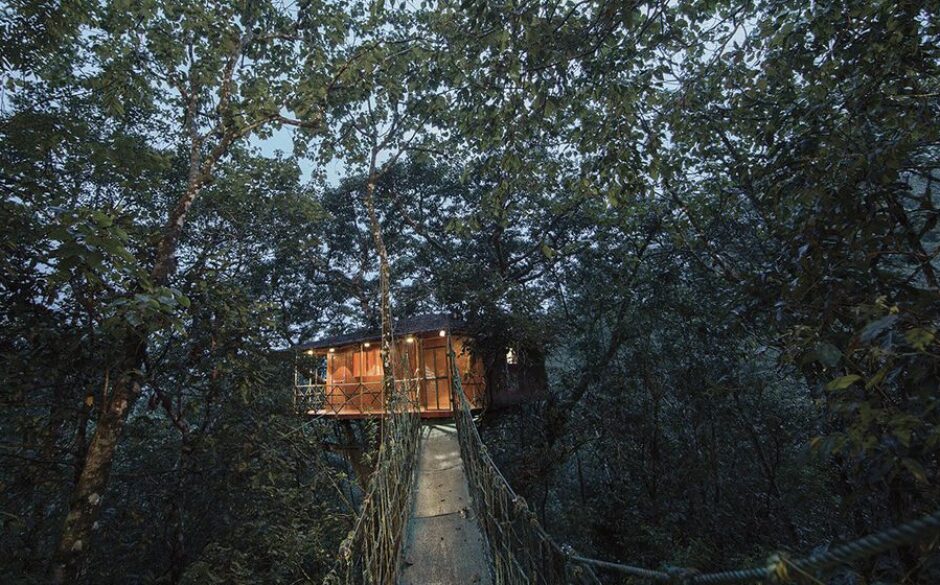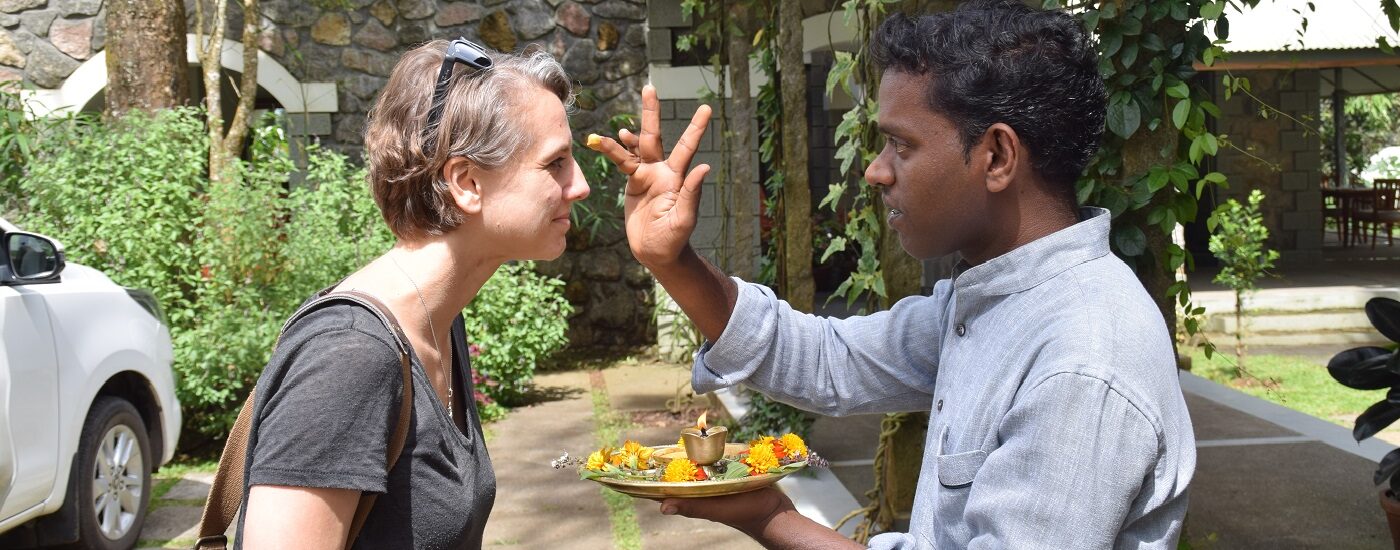World Tourism Day, celebrated on September 27th each year, is a reminder of the importance of tourism and its potential to promote sustainable development. In 2024, the World Tourism Day theme is “Tourism and Green Investment,” emphasizing the role of eco-friendly practices and responsible tourism in preserving the environment.
Celebrating World Tourism Day 2023
Join us on an extensive journey through India, where nature and tourism converge harmoniously in celebration of World Tourism Day, and explore how this theme applies to various regions, initiatives, accommodations, and green investments across this incredible country.
1. The Himalayan Haven
India’s northern region, home to the magnificent Himalayas, sets the stage for showcasing green investments in tourism. Himachal Pradesh and Uttarakhand have embraced sustainable trekking practices, managing waste effectively, and limiting the number of visitors to protect fragile ecosystems. Furthermore, investments in renewable energy sources like hydropower reduce the carbon footprint of these states, ensuring that the Himalayan beauty remains for generations to come.

2. The Western Ghats’ Biodiversity
The Western Ghats, a UNESCO World Heritage Site, epitomizes the connection between tourism and green investment. In Kerala, initiatives prioritize the protection of biodiversity through responsible tourism. Travelers can actively contribute by participating in guided nature walks, supporting eco-friendly accommodations, and engaging with local communities. These investments not only safeguard the environment but also enhance the experiences of visitors.

3. Coastal Charms
Goa’s pristine beaches and marine conservation efforts perfectly embody the theme of sustainable tourism. Eco-conscious travellers can actively engage in beach clean-up activities and opt for accommodations committed to reducing their carbon footprint. Marine life preservation programs, such as those in the Andaman and Nicobar Islands, thrive through ecotourism activities like responsible diving and snorkelling. These initiatives showcase the direct impact of tourism on the conservation of coastal ecosystems.

4. Exquisite Deserts
Rajasthan and Gujarat’s arid regions demonstrate how green investments can transform desert landscapes. Sustainable desert safaris minimize the environmental impact, while responsible tourism initiatives provide support to local communities. Additionally, harnessing solar energy for desert accommodations offers tourists a unique experience while reducing reliance on non-renewable energy sources.

5. The Enchanting Eastern Forests
India’s eastern states, including Assam and Arunachal Pradesh, boast lush forests and tea plantations. Tea estates have adopted sustainable practices, such as organic farming and fair-trade principles, ensuring both environmental preservation and the well-being of local communities. Tourists can immerse themselves in tea-tasting experiences while witnessing the harmonious coexistence of nature and agriculture.

6. Spiritual Retreats in the South
The southern states of Tamil Nadu and Karnataka are renowned for their ancient temples and spiritual retreats, making them ideal places to celebrate the essence of World Tourism Day. In these regions, eco-friendly practices and green investments blend harmoniously with the spiritual and cultural heritage, creating a unique and responsible tourism experience.

7. Vibrant Cultural Heritage in Central India
Central India, encompassing Madhya Pradesh and Chhattisgarh, is rich in cultural heritage and biodiversity. Green investments in this region support the conservation of historical sites and wildlife sanctuaries. Travelers can explore these cultural gems while actively participating in heritage preservation efforts.

World Tourism Day – Green Initiatives in India
India’s commitment to green investment in tourism extends beyond specific regions:
Wildlife Conservation
National parks and wildlife sanctuaries across the country play a crucial role in preserving India’s diverse ecosystems. Conservation efforts include anti-poaching measures, habitat restoration, and wildlife monitoring programs. Tourists visiting these protected areas can contribute directly to conservation by paying entrance fees that support these initiatives.
Solar-Powered Tourism
Solar panels are extensively utilized in the tourism sector to reduce reliance on non-renewable energy sources. Solar-powered accommodations, street lighting, and electric vehicle charging stations are becoming increasingly common, promoting eco-friendly practices.
Waste Management and Recycling
Tourism destinations are implementing waste management and recycling programs to reduce the environmental impact of tourism. Waste segregation, recycling bins, and awareness campaigns encourage responsible disposal of waste.
Sustainable Transportation
Promotion of sustainable transportation options such as electric rickshaws, bicycles, and eco-friendly taxis helps reduce air pollution and minimize the carbon footprint of tourists.
Responsible Tourism Campaigns
Various states in India have launched campaigns to educate tourists about responsible behaviour, waste management, and eco-friendly practices, encouraging visitors to be mindful of their ecological footprint. These initiatives aim to foster a culture of responsible tourism.

Accommodations with Green Investment Across India
Green investments in accommodations play a crucial role in promoting sustainable tourism across India. Here are some noteworthy examples:
Treehouse Retreats
Treehouse resorts can be found in various regions, offering an immersive experience in nature. These accommodations are built using sustainable materials, and their construction often involves minimal disruption to the environment. Additionally, many treehouse resorts implement eco-friendly practices, such as rainwater harvesting, solar power, waste recycling, and even tree-planting initiatives, to minimize their ecological footprint.
Jungle Lodges and Wildlife Resorts
India’s national parks and wildlife sanctuaries often feature jungle lodges and wildlife resorts that blend seamlessly with their surroundings. These accommodations prioritize responsible tourism and environmental conservation. By choosing to stay in such lodges, tourists not only enjoy proximity to wildlife but also support the preservation of natural habitats.
Eco-Cottages
Eco-cottages, found in various parts of India, are designed with sustainability in mind. They are typically built using locally sourced, eco-friendly materials and are powered by renewable energy sources like solar panels. Rainwater harvesting, waste reduction practices, and organic farming are common in eco-cottage setups, contributing to eco-conscious tourism.
Heritage Homestays
Heritage homestays provide tourists with an authentic cultural experience while promoting green initiatives. Many heritage properties have adopted eco-friendly practices such as energy-efficient lighting, water conservation measures, and organic gardens. Staying in these homestays not only supports local communities but also encourages sustainable living.
Eco-Resorts in Coastal Regions
Coastal regions like Goa and Kerala offer eco-resorts that prioritize sustainable tourism. These resorts often feature green infrastructure, including energy-efficient lighting, water conservation measures, and waste management systems. Moreover, their commitment to beach clean-ups and marine conservation aligns with the theme of Tourism and Green Investment.

As we celebrate World Tourism Day 2024, India shines as an exemplary destination where tourism and green investment coexist harmoniously. Its diverse landscapes, coupled with a commitment to responsible tourism, make it an inviting haven for eco-conscious travellers. By choosing India for your next adventure, you not only experience the country’s natural wonders but also contribute to their preservation and support initiatives that shape the future of sustainable tourism. Let us unite in celebrating India’s remarkable journey towards greener, more responsible tourism on this World Tourism Day.

